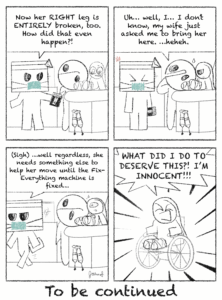UR Security released its yearly Think Safe report last week, providing required disclosure of crime statistics from all University properties for the last year.
The University is required by federal and state law to inform members of the community about campus security policies, victim rights and services and crime statistics reported to campus and local authorities.
Perhaps the most positive trend seen in this year’s report is a decline in reported car thefts. Across all University campuses, only 17 cases were reported in 2005, as compared to 39 in 2004 and 43 in 2003.
“In the larger Rochester community, there has been a decline in auto theft,” UR Director of Security Walter Mauldin said. “Overall, theft is down around 30 percent.”
Still, this overall decline does not completely account for the clearly measurable drop in auto thefts on campus in recent years.
“The other reason for the decline is a real effort by students, staff and faculty to report problems to UR Security sooner,” Mauldin said. “A number of incidents occurred where people were going to steal cars but were seen and stopped.”
This year, the declining trend in car theft appears to be continuing. Through Wednesday evening, only four confirmed auto thefts had occurred on UR campuses, not including a possible fifth that remains under investigation.
Another downward trend appearing in the report is liquor law violation referrals, defined in the Federal Bureau of Investigations’ Uniform Crime Report standard as “furnishing liquor to a minor, using a vehicle for illegal transportation of liquor and drinking on a public conveyance,” among other things. Public drunkenness and driving under the influence are not included.
In 2004, 226 cases were reported in which students were referred to campus authorities for violations of alcohol laws. In 2005, according to the Think Safe report, this number was reduced to 170.
Also down was the number of referrals to campus authorities for drug offenses, dropping from 68 in 2003 to 59 in 2004 and 48 last year. Arrests for drug violations, however, rose from one in 2004 to two last year.
Burglary across the UR campuses was up slightly from the previous year, rising from 29 incidents in 2004 to 39 in 2005. Still, both of these represent an improvement from 2003, in which there were 74 incidents.
“Two years ago, the major problem was thefts from residence halls,” Mauldin said. “At least two repeat offenders committed burglaries and they were tied to many offenders.”
Repeat offenses appear to be at least part of the cause of last year’s rise in burglaries.
“Last year, the number went up a bit, but we know that at least eight burglaries were tied to one subject,” Mauldin said. “We captured him two times, but he made bail and was released.”
At this point, the thief remains in prison.
This burglar was known to use keys to get into locked rooms, so as not to arouse suspicion by leaving telltale broken locks or other evidence of forced entry. Still, other tactics are used by burglars on campus that render them less likely to be stopped.
“Sometimes, a person will have a specific approach that they use, such as disguising themselves as a college student,” Mauldin said. “Only after the burglary do you know that the person was not a student.”
The Think Safe report also lists no arrests for weapons possession in 2005. However, two people were referred to campus authorities for weapons possession, as in 2004. The report, however, specifies that all cases of referral for weapons possession involved air guns, except for one case in 2005 involving a sword.
This year’s Think Safe report introduced a feature on the River Campus Medical Emergency Response Team, which responds to over 350 emergency medical calls per year.
UR Security and other campus authorities concede that there is always work to be done until the number of reported incidents reaches zero.
“One item that is always of note is that the most unreported offenses we have are personal or domestic,” Mauldin said. UR Security offers many ways to report on-campus incidents, including proxy and confidential report processes.
Still, the statistics in the report are, for the most part, positive.
“I am encouraged by the general downward trend,” Mauldin said. “I think it is the result of a community effort.”Majarian can be reached at mmajarian@campustimes.org.
